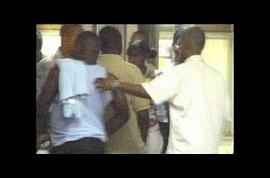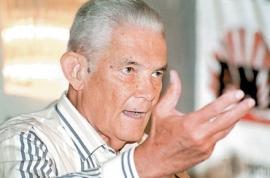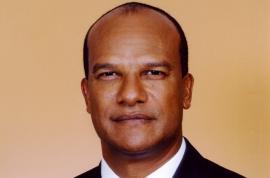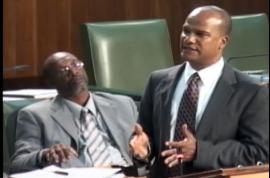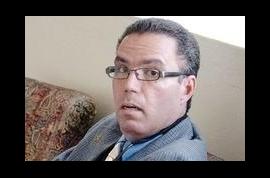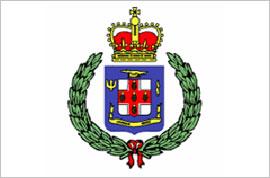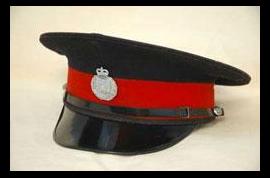Red-hot controversy continues to swirl around the Government over the deal involving top-flight American law firm Manatt, Phelps and Phillips.
The troubling arrangement, which attracted a hefty US$100,000- (approximately J$8.9 million) per-quarter fee, kicked off last October.
The firm then filed documents on the United States Department of Justice website claiming that it represented the Government of Jamaica.
“We will be speaking with members of the (US) executive branch to provide information on issues regarding existing political and economic matters, including existing treaty agreements between Jamaica and the US,” the firm stated in its documentation.
And even as the controversy deepens, more questions are being asked about who paid the bill charged by the American firm.
“The questions still remain to be answered as to what money was paid, by whom was it paid, what services were rendered, and whether the resources of the taxpayers were used to engage this firm, and I add, if not the taxpayers’ whose resources?” declared Opposition Leader Portia Simpson Miller.
“This new development, which has been linked to the already complicated, sensitive, controversial and
contentious extradition impasse between Jamaica and the United States of America will only serve to further jeopardise Jamaica’s standing and reputation and diminish its credibility within the community of nations,” Simpson Miller added.
So far, the Bruce Golding administration has rejected all allegations of wrongdoing, as well as the insinuation that the firm was contracted to deal with the impasse surrounding the extradition request for Christopher ‘Dudus’ Coke.
Instead, the administration is pointing the finger at attorney-at-law Harold Brady, who continues to argue that reports that he contracted the company to work for the Government are all a mistake, which has been corrected by the firm.
But there is no correction on the Department of Justice website, and up to Friday, officials at that office were still reporting that the firm was dealing with political and economic matters, including treaty arrangements, for Jamaica.
This is just one of several inconsistencies which have left gaping holes in the official reports.
It was expected that the Government would shine more light on the matter yesterday, but Information Minister Daryl Vaz had little to say after announcing on Thursday that Brady had been given until the end of business day Friday to provide proof that the error had been corrected.
“I have been told that something was delivered to my office, but I’m not in office until Monday morning, so I don’t know what the contents are,” Vaz told The Sunday Gleaner.
That was not enough for the opposition leader. “Should Mr Brady be found to have misrepresented the Government, severe and immediate sanctions are required,” said Simpson Miller.
There was no other comment from the Government yesterday, even though Prime Minister Golding used a radio interview on Friday to indicate that the Government would be seeking answers from Manatt, Phelps and Phillips.
Golding has admitted that Brady approached Solicitor General Douglas Leys and suggested that Manatt, Phelps and Phillips could provide assistance in relation to treaty issues between Jamaica and the USA.
According to Golding, Leys met with representatives of the firm and advised them that their services were not needed at the time but they would be considered should the need arise.
Golding said that meeting occurred after Brady mentioned the issue to Leys on a flight to Washington in December.
That time line is another of the major inconsistencies in the Government’s report.
Documents filed with the US Department of Justice show an agreement between Brady and the company dated October 1, 2009. That was more than two months before he reportedly mentioned the issue to the solicitor general.
“This government has, over time established itself as a government of half-truths and mis-representation,” alleged Simpson Miller in her Friday release as she pointed to the inconsistencies in the documents on the table and the official reports.
“With this new development, not only will this reputation extend internationally, but there is a great risk that the people of Jamaica will be painted with that broad brush, based on the Government’s actions,” declared Simpson Miller.
Efforts to contact Brady yesterday were unsuccessful.
What they have said
Bruce Golding
March 16, 2010
“Let me make it quite clear. The Government of Jamaica has not engaged any legal firm, any consultant, any entity whatsoever in relation to any extradition matter other than deploying the resources that are available within the Attorney General’s Department, which has a duty and a responsibility to guide the Government in these matters.”
March 18, 2010
“Further to my statement in Parliament on Tuesday, I have made investigations to ascertain whether the Government has had any connection with the US law firm Manatt, Phelps and Phillips.
“They suggested that one of their representatives attend the meeting (Manatt Phelps and Phillips-Douglas Leys) as an observer at no cost in the event that a decision were to be made to retain them at a later date. He attended the meeting but took no part in the discussions.”
Dr Peter Phillips
March 16, 2010
“My question is, does this represent a contractual obligation involving the Government of Jamaica? Does it relate to extradition matters, and is it properly entered into by the individual?”
March 18, 2010
“It is now clear, by his own admission today (yesterday), that he (Golding) obviously was not in possession of the facts.”
Vaz
March 17, 2010
“If it is that anybody has signed or done anything indicating that they were acting on behalf of the Government, then they must either provide that evidence, or whatever sanctions that need to be carried out are carried out.”
March 20, 2010
“I have been told that something was delivered to my office, but I’m not in office until Monday morning, so I don’t know what the contents are.”
Brady
March 17, 2010
“I refute entirely as baseless the assertions made by the member of parliament, and as it is stated in the contract from which he quoted, “When you sign this letter, it becomes a contract between you (Brady & Co) and us (Manatt Phelps & Phillips’).
“A footnote to the letter states that in a contract to the Government of Jamaica. That is not correct and that footnote was corrected’.”
